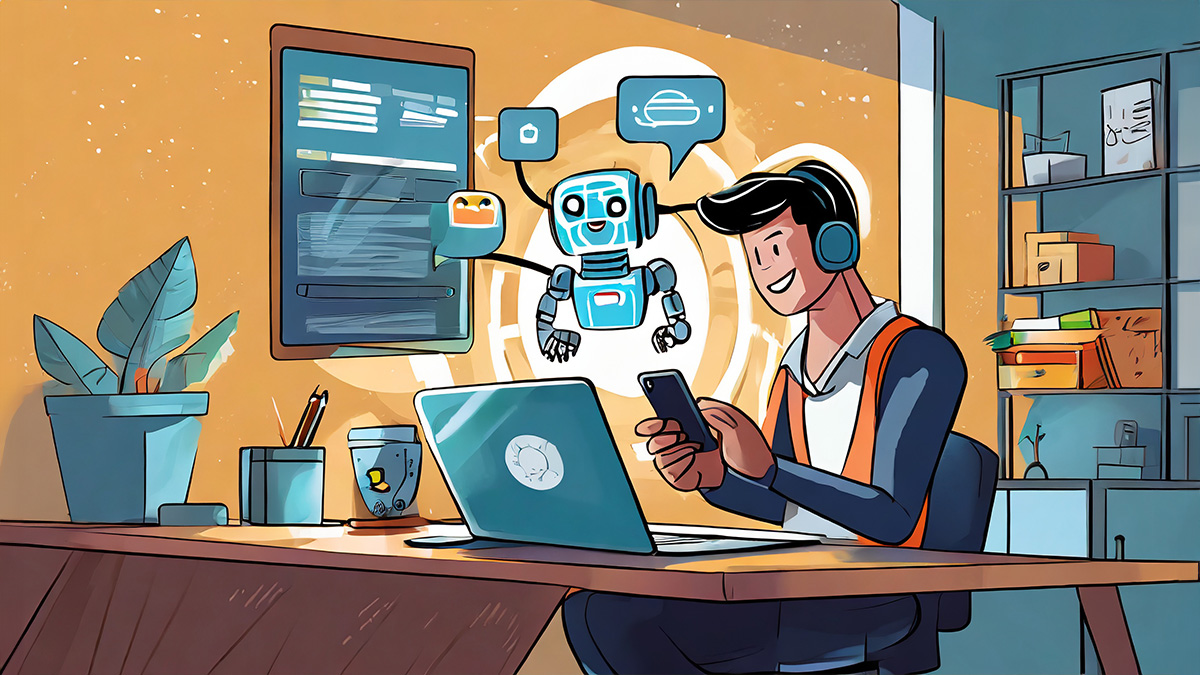Artificial Intelligence (AI) has transformed how we work, communicate, and interact with machines, streamlining everyday tasks.
From automating complex processes to securely managing data, AI has revolutionized various industries. In this blog post, we’ll explore 7 ways AI has boosted productivity across different sectors.
Introducing AI – What it Is and How It Works
AI is an advanced technology that enables machines to perform tasks that typically require human intelligence. It involves the development of intelligent systems that can analyze data, recognize patterns, and make decisions without explicit programming. By leveraging algorithms and machine learning techniques, AI has enabled machines to learn from previous data inputs and improve their performance with each iteration. This allows for more accurate predictions and decision-making, making AI a powerful tool for boosting efficiency.
Creating Smarter Business Solutions with AI-Powered Chatbots
Chatbots are a ubiquitous and prominent example of how AI is seamlessly integrated into our everyday activities. These virtual assistants use natural language processing (NLP) and machine learning algorithms to communicate with users, providing them with information or completing tasks on their behalf. Additionally, chatbot examples include customer service chatbots that can handle inquiries and complaints, personal assistant chatbots that can schedule appointments and reminders, and sales chatbots that can interact with potential customers. By automating these tasks, businesses can save time and resources while providing a seamless experience for their customers.
Automating Administrative Tasks
AI has significantly improved administrative efficiency, freeing up time for employees to focus on critical and creative work. For example, AI-powered document management systems automatically sort and categorize digital files, simplifying access to important information. AI-powered scheduling software handles complex tasks like coordinating team schedules, booking appointments, and managing reminders, making time management and task prioritization easier for professionals.

Optimizing Everyday Workflows
AI has streamlined workflows, improving speed and accuracy. In healthcare, AI analyzes medical records, lab results, and data to aid accurate diagnoses and personalized treatment plans. In manufacturing, AI identifies defects, reduces errors, and enhances product quality. AI has transformed supply chains, optimizing inventory management and predicting demand to save costs and reduce waste.
Enhancing Cybersecurity
Cybersecurity is a top concern for organizations, and AI has greatly improved their ability to protect against threats. By analyzing vast amounts of data, AI-powered security systems can quickly detect and respond to potential cyber-attacks, minimizing damage and reducing response time. Additionally, AI can identify patterns in user behavior, flagging any suspicious activity and preventing unauthorized access to sensitive information.
Personalizing the Customer Experience
AI has transformed how businesses engage with customers, delivering personalized experiences that enhance satisfaction and loyalty. By analyzing customer data, AI offers tailored recommendations and promotions, optimizing individual needs. This personalization elevates customer experience and drives sales and revenue.
Streamlining Decision-Making Processes with AI
AI has revolutionized decision-making by offering valuable insights and predictions through data analysis. In finance, AI tools analyze market trends and provide investment recommendations. In marketing, AI identifies target audiences and predicts successful campaigns. This enables professionals to make informed decisions based on accurate data, rather than relying on intuition or guesswork.
AI has greatly improved efficiency in various industries by automating tasks, streamlining workflows, enhancing security measures, and personalizing experiences. As AI continues to evolve and advance, it will undoubtedly continue to transform how we work and interact with machines.
